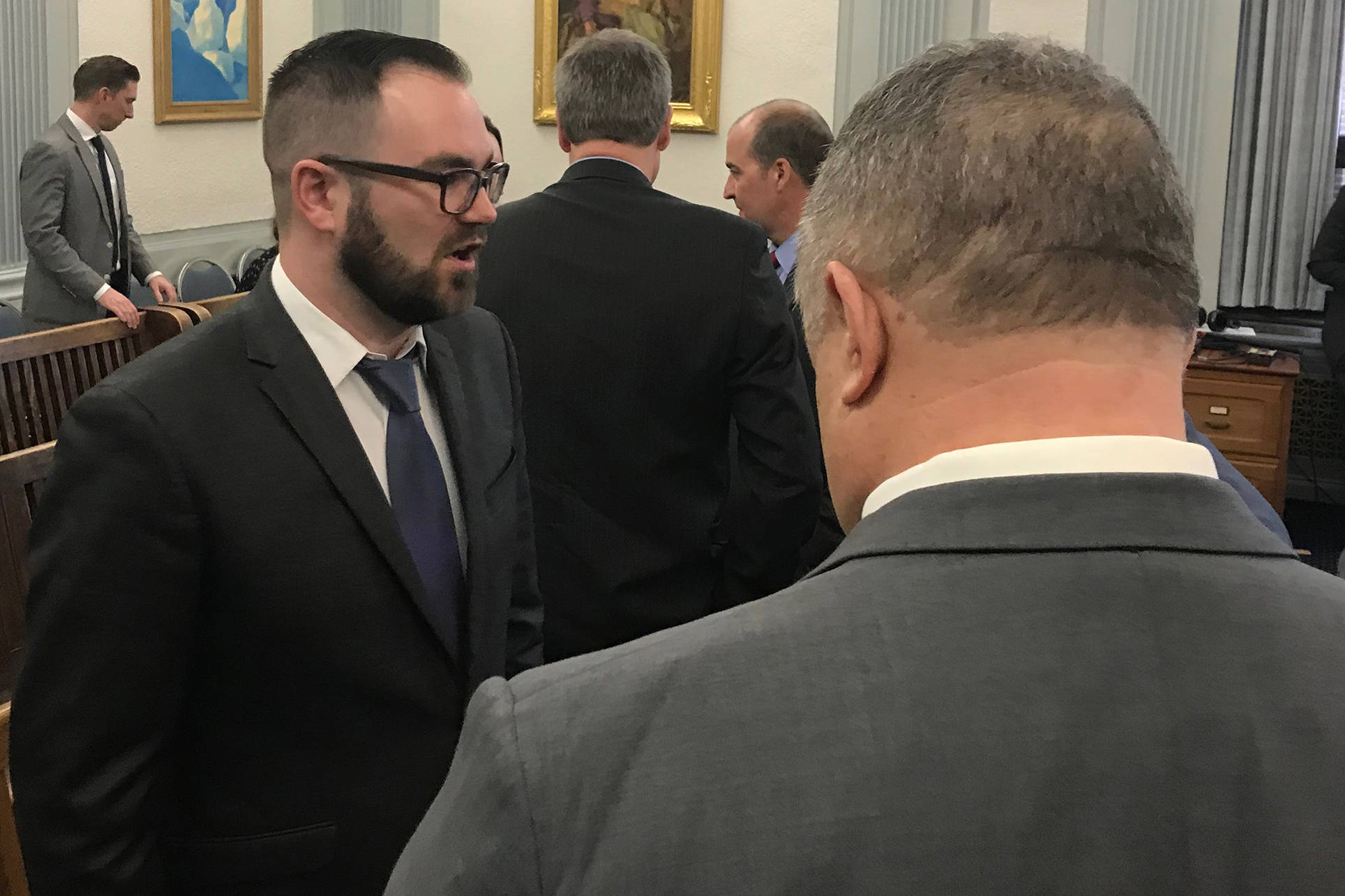A candidate for the Nikiski seat on the Kenai Peninsula Borough Assembly has been ordered by a state commission to cease and desist any coordination with a local political action group.
After several expedited hearings this week regarding a complaint received Sept. 18, the Alaska Public Offices Commission issued an order Friday morning directing John Quick and his campaign to “immediately cease and desist from coordinating with Alaska Yes on advertisements that state they are ‘not authorized, paid for or approved by any candidate.’”
“After hearing the matter on an expedited basis, the Commission concludes that Mr. Quick’s campaign is aiding and abetting a probable violation by Alaska Yes of the disclaimer requirement,” the order states.
The complaint was also sent to APOC staff for further investigation.
In response to the order issued by APOC Friday, Quick’s lawyer Stacey Stone said on behalf of Quick that APOC’s decision was unsurprising.
“Given the revelation that occurred yesterday during the hearing that his (Quick’s) campaign manager had been discussing the political advertisements that were going out with Alaska Yes, it was anticipated that APOC would take some sort of action,” Stone said Friday.
The cease-and-desist order follows revelations made during an APOC hearing on Thursday that Quick’s then-campaign manager, Paul Huber, had been communicating with Alaska Yes Inc via email correspondence.
Alaska Yes is a nonprofit political advocacy group that has distributed ads on Facebook and local media outlets promoting John Quick and other assembly candidates Rose Henry and Holly Odd while also issuing negative claims about Quick’s opponent Jesse Bjorkman and Odd’s opponent Brent Johnson. In addition, a website attacking Henry’s opponent Tyson Cox was paid for by Alaska Yes.
Alaska Yes Treasurer Kathy Toms — who is no longer listed as the group’s treasurer as of Friday — testified before the APOC commission Thursday and listed Huber among the recipients of emails containing Alaska Yes Inc advertisements. Toms testified that suggestions, comments and approvals of those ads are made via email correspondence, and she also named Alaska Yes Inc board members Wayne Ogle and Nona Safra as being part of the email group.
After Toms’ testimony, Quick acknowledged that Huber was his campaign manager but said that Huber had not acted with Quick’s knowledge or consent in reviewing the Alaska Yes advertisements before they were distributed.
Huber did not respond to request for comment from the Clarion Friday afternoon.
Following the testimonials from Toms and Quick, the commission concluded that Huber’s involvement in reviewing advertisements distributed by Alaska Yes makes the advertisements’ disclaimers that they “were not authorized, paid for, or approved by any candidate,” false. The APOC commission stated in the order that Alaska Yes is in “probable violation” of Alaska Statute 15.13.135(b) because of the false disclaimer. The commission did not make a decision whether Alaska Yes violated this statute because no complaint against the group has been filed.
The commission has referred the complaint to APOC staff for further investigation on a regular basis. The investigation will determine whether Quick violated contribution-reporting requirements as defined in Alaska Statutes 15.13.040(a) and 15.13.110 by failing to report the advertisements as campaign contributions.
In response to this investigation, Stone maintained that Quick was unaware of Huber’s involvement with Alaska Yes.
APOC executive director Heather Hebdon said on Friday that APOC staff have 30 days to conduct an investigation, issue a report to the commission and provide a recommendation on a civil penalty assessment, if any is warranted.
“Mr. Quick wasn’t aware of what his campaign manager was engaged in or involved in,” Stone said. “He’s cooperating with APOC, and he’s ensuring that the integrity of his campaign is maintained going forward. He immediately accepted the resignation of Mr. Huber as soon as he learned of his actions following the hearing yesterday.”
Upon receiving the staff report, the APOC commission will issue a final order. All orders issued by the APOC commission can be appealed to the Alaska Superior Court.

